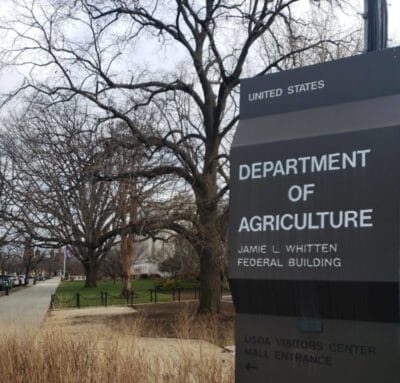DTN – The U.S. Senate on Thursday voted 92-8 to pass legislation that will create a carbon-credit certification program at the U.S. Department of Agriculture.
The Growing Climate Solutions Act will create a USDA certification program to provide technical assistance for farmers, ranchers and forest owners to enroll in a carbon-credit program. The department will provide guidance to farmers on how to qualify for carbon programs as well as establish protocols for carbon markets.
The legislation comes as a growing number of companies have started enrolling farmers in carbon sequestration programs to pay for farming practices that minimize tillage and increase organic matters in the soil. Other programs help famers reduce their inputs such as fertilizer to lower a farm’s carbon footprint.
The bill also includes an advisory committee USDA will set up, with farmers and ranchers making up the majority of members. The bill also includes $4 million in startup funds for USDA’s program.
A companion bill has been introduced in the House, but that chamber has not acted on the legislation. The large bipartisan vote in the Senate will likely help accelerate movement in the House. As if to indicate USDA is up to the task for such a program, the department on Thursday announced a $10 million pilot project through the Environmental Quality Incentives Program (EQIP) to help famers in 10 states, including Montana, to implement practices to sequester carbon and reduce emissions.
“Farmers, ranchers and forest landowners are the best stewards of our lands and waters, and they play a critical role in climate change mitigation,” said Gloria Montano Greene, USDA’s deputy undersecretary for farm production and conservation. “We will use this EQIP signup to deliver support for implementing critical climate-smart conservation practices to producers in key states, with plans to leverage lessons learned and further support national climate change mitigation efforts later this calendar year.”
Ag Group Reaction
Reflecting the decade of change in perceptions, the American Farm Bureau Federation had focused on “Don’t cap our future” in the group’s resistance to an economywide cap-and-trade program. Yet AFBF helped form an alliance of 75 different agricultural and environmental groups — the Food and Agriculture Climate Alliance — that endorsed the Growing Climate Solutions Act.
“The Growing Climate Solutions Act demonstrates how far we’ve come in climate policy over the past decade,” said Zippy Duvall, a Georgia farmer and president of the American Farm Bureau Federation. “Farm Bureau has worked tirelessly through the Food and Agriculture Climate Alliance and directly with lawmakers to help them understand the importance of working with America’s farmers and ranchers to ensure climate policy remains voluntary and market-driven. We encourage members of the House to follow the Senate’s lead and work in a bipartisan manner to create responsible policy that protects the environment and protects the farmers and ranchers who rely on clean air and water to feed the nation.”
Carbon markets will help farmers apply more climate-smart practices on their farms to build resiliency to extreme weather events.
Among agricultural groups, the National Farmers Union has been a leader in calling for Congress to take climate action. NFU endorsed the early versions of the bill as well.
Rob Larew, president of NFU, called on the House to act. “The urgent threat of climate change — and the need for immediate action to mitigate and adapt — is irrefutable. Last year, our country saw both its most active hurricane season and its most active wildfire season, and the years ahead are expected to be even more catastrophic,” Larew said.
####
DTN – 2021


